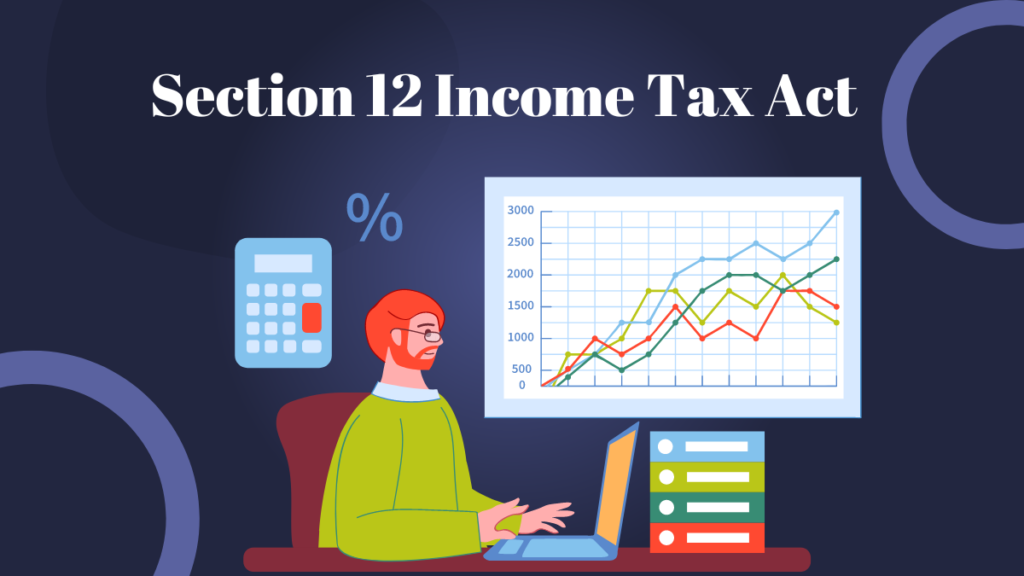Understanding Section 12 of the Income Tax Act: Applicability and Registration Conditions
Introduction
Section 12 of the Income Tax Act plays a pivotal role in defining the conditions under which income from trusts and charitable institutions can be exempted from tax. This section, along with Sections 11 and 12A, outlines the requirements for registration, maintenance of records, and compliance necessary for trusts and institutions to benefit from tax exemptions. In this comprehensive guide, we will delve into the intricacies of Section 12, its applicability, and the procedural requirements for registration under Section 12A and 12AA.
Applicability of Sections 11 and 12 under Section 12A
Registration Requirements
Application for Registration:
- The trust or institution must apply for registration in the prescribed form and manner to the Principal Commissioner or Commissioner.
- The application should be made before the 1st of July, 1973, or within one year from the creation of the trust or establishment of the institution, whichever is later.
Late Applications:
- If the application is made after the prescribed period, sections 11 and 12 will apply from:
- The date of creation of the trust if delayed for sufficient reasons.
- The first day of the financial year in which the application is made if not satisfied by the reasons for delay.
- Applications made on or after June 1, 2013, are subject to different provisions.
Conditions for Ongoing and Modified Trusts:
- If the trust or institution modifies its objectives, it must apply for re-registration to the Principal Commissioner or Commissioner within 30 days of such modification.
- Trusts registered under old provisions must reapply for registration under new provisions within three months from April 1, 2021, or within six months prior to the expiry of the current registration.
Maintenance and Auditing of Accounts
Books and Records:
Trusts must maintain their books of accounts and documents in the prescribed manner and place.
Auditing:
- The accounts must be audited by a certified accountant.
- The audit report should be submitted before the specified date mentioned in section 44AB.
Return of Income
Filing of Return:
The trust must file the return of income within the time allowed under section 139(1) or section 139(4).
Procedure for Registration under Section 12AA
Application and Documentation:
- The Principal Commissioner or Commissioner may call for necessary documents or information to verify the genuineness of the trust’s activities and compliance with other laws.
- Upon satisfaction, the Commissioner will pass a written order for registration. If not satisfied, an order of refusal will be issued, and the applicant will be given a reasonable opportunity to be heard.
Time Frame for Decision:
The order for granting or refusing registration must be passed within six months from the end of the month in which the application was received.
Cancellation of Registration:
- If the activities of the trust are not genuine or not carried out per the trust’s objectives, the registration can be canceled after giving the trust a chance to be heard.
- Registration can also be canceled if the trust fails to comply with any other applicable laws, provided the non-compliance has attained finality or has not been disputed.

Fresh Registration under Section 12AB
Application Process:
- On receiving an application, the Principal Commissioner or Commissioner will pass an order registering the trust for five years if satisfied with the documents and activities.
- If not satisfied, an order rejecting the application and canceling the registration will be passed after affording the trust a reasonable opportunity to be heard.
Provisional Registration:
The trust may be provisionally registered for three years from the assessment year from which registration is sought.
Compliance and Violations:
- Registration can be canceled if the trust:
- Uses income for purposes other than its objectives.
- Engages in business activities not incidental to its objectives.
- Applies income for private religious purposes.
- Fails to comply with the registration conditions or other applicable laws.
Timeline for Orders:
The order for cancellation or refusal to cancel the registration must be passed within six months from the end of the quarter in which the first notice was issued.
Key Points to Remember
Amendments and Updates:
The Income Tax Act undergoes amendments periodically. Trusts and institutions must stay updated with these changes to ensure compliance and maintain their tax-exempt status.
Documentation and Transparency:
Maintaining transparent and up-to-date records is crucial. Regular audits and timely submission of financial documents can help avoid complications during the registration or renewal process.
Legal Assistance:
Seeking professional legal assistance can be beneficial, especially when dealing with complex regulatory requirements and ensuring that all conditions for tax exemptions are met.
Case Studies and Examples
Case Study 1: Successful Registration
A newly established trust applied for registration within one year of its creation. It maintained meticulous records and complied with all audit requirements. The Principal Commissioner, satisfied with the genuineness of its activities, granted registration within the stipulated six months.
Case Study 2: Cancellation of Registration
An existing trust modified its objectives without applying for re-registration. Upon review, it was found that the trust’s activities did not align with its stated objectives, leading to the cancellation of its registration after a hearing.
Case Study 3: Provisional Registration
A trust applied for provisional registration and was granted a three-year period to commence its activities. During this period, it ensured compliance with all legal requirements, leading to successful permanent registration upon review.
FAQ
1. What is Section 12 of the Income Tax Act?
Section 12 of the Income Tax Act outlines the conditions and requirements for trusts and charitable institutions to qualify for tax exemptions on their income.
2. What are the main conditions for a trust to be eligible for tax exemption under Sections 11 and 12?
The trust must apply for registration, maintain proper books of accounts, get its accounts audited, and file a return of income within the specified timelines.
3. What happens if a trust modifies its objectives?
If a trust modifies its objectives, it must apply for re-registration to the Principal Commissioner or Commissioner within 30 days of such modification.
4. What is the procedure for obtaining registration under Section 12AA?
The trust must apply to the Principal Commissioner or Commissioner, who will verify the genuineness of the activities and compliance with other laws before granting or refusing registration.
5. How long does the registration process under Section 12AA take?
The registration process should be completed within six months from the end of the month in which the application was received.
6. Can the registration of a trust be canceled?
Yes, the registration can be canceled if the trust’s activities are not genuine, not in accordance with its objectives, or if it fails to comply with other applicable laws.
7. What is provisional registration under Section 12AB?
Provisional registration is granted for three years from the assessment year in which the registration is sought, allowing the trust to commence activities while the application is being processed.
8. What are the consequences of non-compliance with Section 12AB?
Non-compliance can result in the cancellation of registration, which would mean the trust’s income will not be exempt from tax.
9. How does Section 12AB differ from Section 12AA?
Section 12AB outlines the procedure for fresh registration, including provisional registration for new trusts, whereas Section 12AA deals with the detailed process for existing trusts seeking registration or renewal of their tax-exempt status.
10. What are specified violations under Section 12AB?
Specified violations include applying income for purposes other than the trust’s objectives, engaging in non-incidental business activities, applying income for private religious purposes, and failing to comply with registration conditions or other applicable laws.
Conclusion
Understanding the conditions for applicability and the procedural requirements for registration under Section 12A and 12AA is crucial for trusts and charitable institutions aiming to benefit from tax exemptions under the Income Tax Act. Proper maintenance of records, timely applications for registration, and adherence to the stipulated guidelines are essential to ensure compliance and avoid the risk of cancellation of registration.
For more detailed information on tax exemptions and compliance for trusts and charitable institutions, visit www.smarttaxsaver.com.




